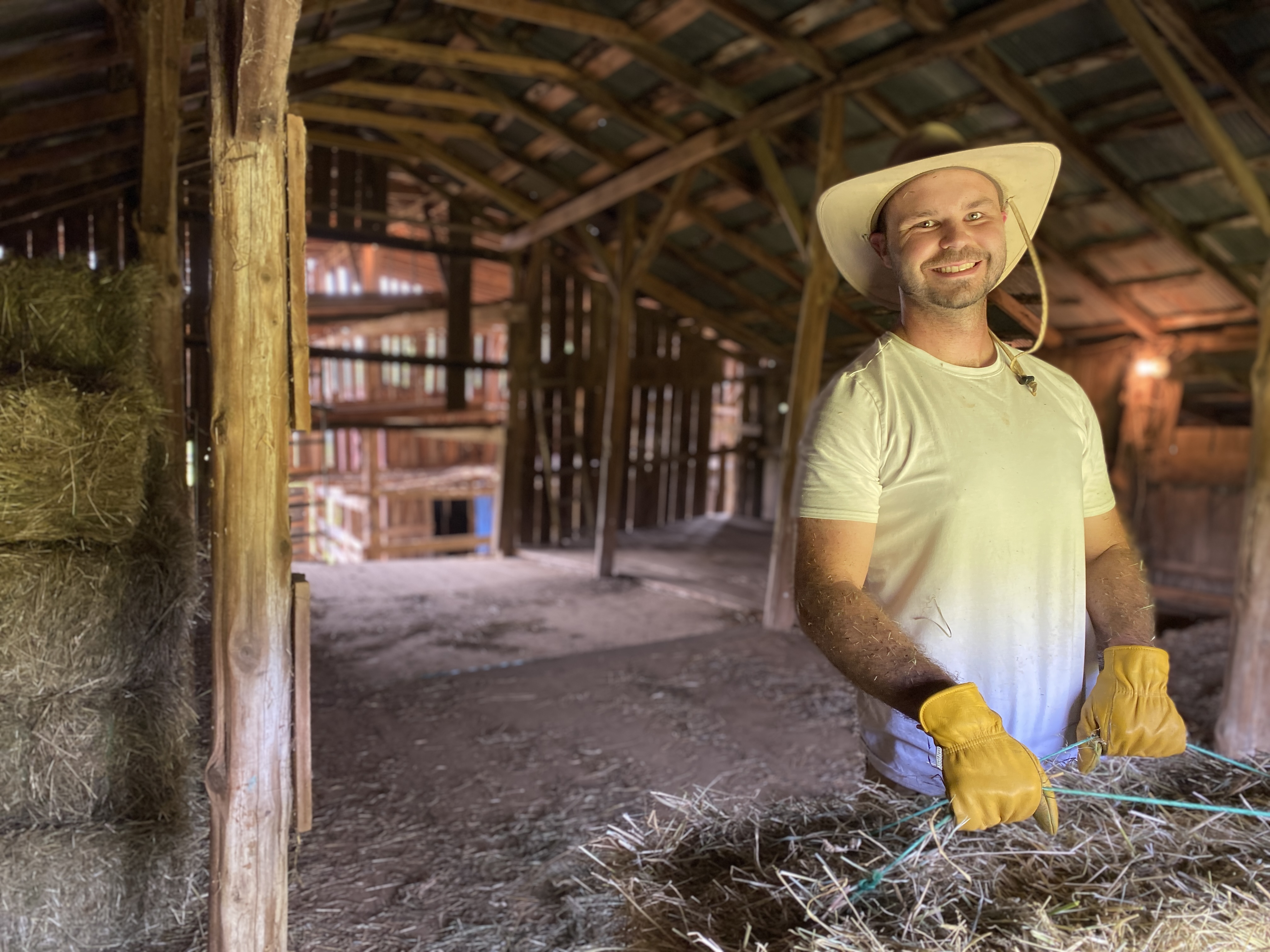
When Tyler Childers Sings 'Watch Out', We Should Listen
Brooks Lamb on foraging, imagination and mama bears.
Food as a verb thanks
for sponsoring this series

Brooks Lamb is a farmer, teacher, author of Love for the Land and an American Farmland Trust Land Protection Specialist.
He's also a good man and friend.
We are proud to publish his original essay on a song from the new Tyler Childers album.
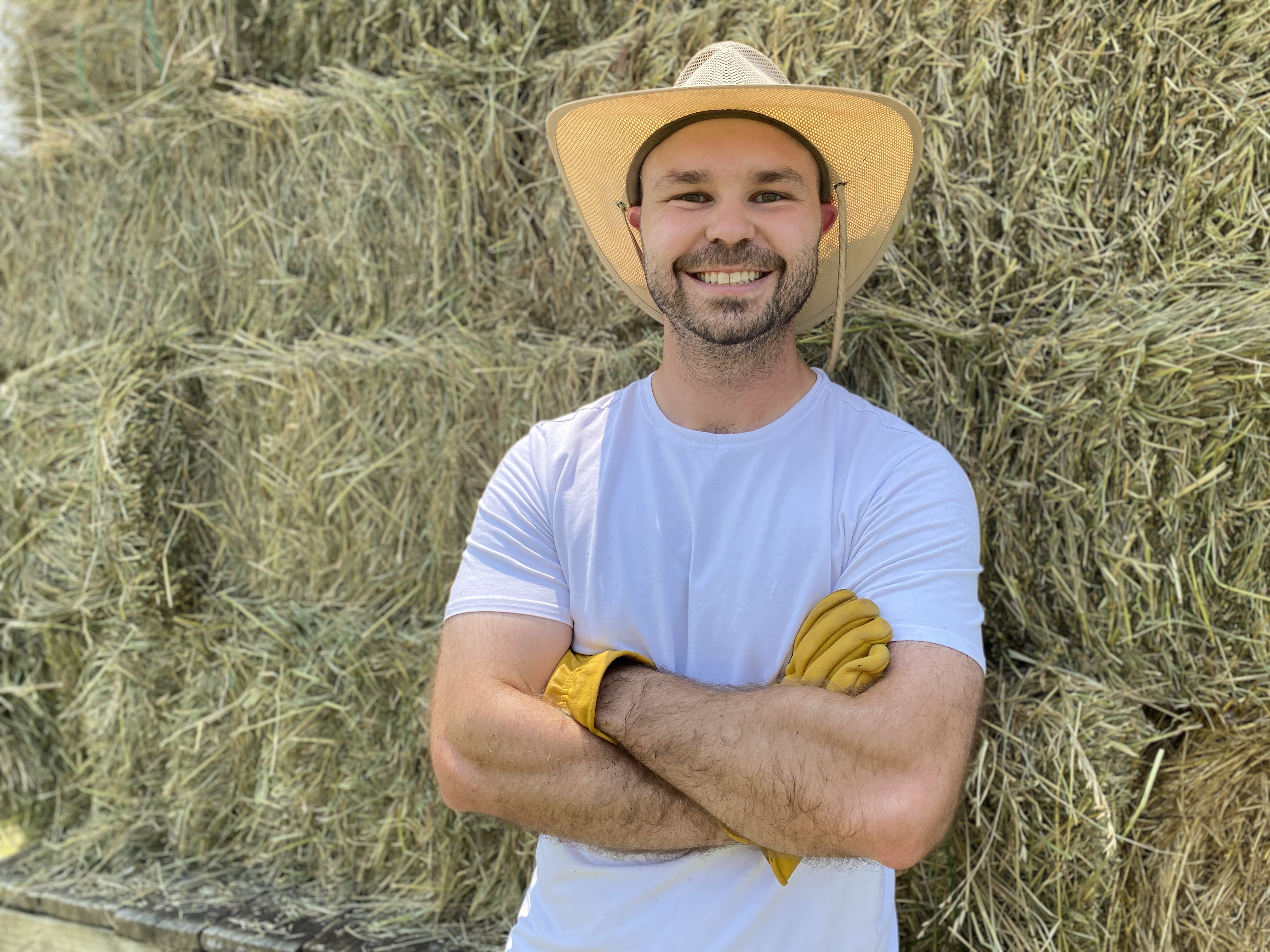
When Tyler Childers Say "Watch Out," We Should Listen
By Brooks Lamb
At the end of July, Tyler Childers released his latest album. Called Snipe Hunter, it includes a baker’s dozen songs. I like most of them—and even love a few.
“Bitin’ List,” which speaks to who Childers would bite should he ever get rabies, is hilarious, bizarre, and brilliant. “Poachers” is an entertaining story song, one that alludes to hunting dogs, too-powerful game wardens, seized-property auctions, and even The Shawshank Redemption. “Dirty Ought Trill” is a flat-out heater that makes me want to dance —and I can’t dance.
But more than any of these tracks, it’s “Watch Out” that has captured my attention over the last few weeks. It’s the song that keeps spinning in the background of my brain while I’m working or running. More than once, I’ve woken up in the morning with the lyrics stuck in my head.
In this song, Childers sings about foraging. The song’s narrator—Childers himself or maybe some other character—describes the different plants and mushrooms for which he’s searching. He refers to both their “actual names” and their vernacular titles, or the names that have been passed down from friends and family.
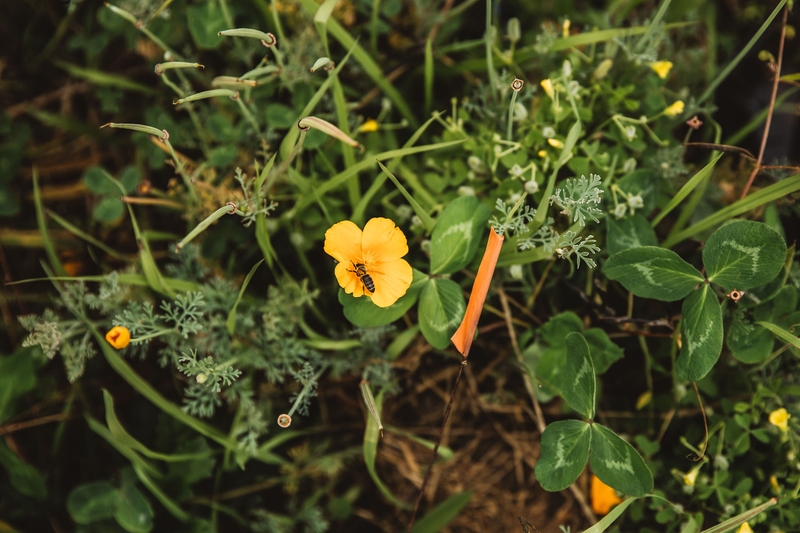
At one point, he finds an oyster mushroom and says, “it is your daddy’s favorite.” With that one added line, the context shifts. It’s like the narrator is out in the woods with his child, sharing generational wisdom along the way.
The song also contains some warnings. It tells anyone foraging through fields and forests to keep an eye out for copperheads, especially “in the rocks and the weeds and the woodpile.” As someone who has been snakebit while cleaning up brush under a magnolia tree, I appreciate the heads up.
The lyrics also suggest whistling while walking through the woods to alert other forest dwellers, especially mama bears, that you’re coming. That image is powerful, and the advice is practical. I recently spoke with my good friend Mike, a fellow Childers fan, who lives in Johnson City, Tennessee. While he’s hiking through remote parts of the Appalachian mountains, he now whistles this song.
"Childers is asking us to 'Watch Out' - not just for lurking dangers, but for the beauty and particularity that make the places around us so unique."
I could stop analyzing the tune and just enjoy it. I could look back on happy moments spent foraging with my mom— picking blackberries in overgrown fence rows, wearing long sleeves and rubber boots in the summer heat to protect us against snakes and thorns.
But as I listen and re-listen, I can’t help but think that Childers is asking us to hear, and do, something deeper. To me, the song isn’t so much an invitation to start foraging. Instead, it’s a plea to pay attention.
Childers is asking us to “Watch Out”—not just for lurking dangers, but for the beauty and particularity that make the places around us unique.
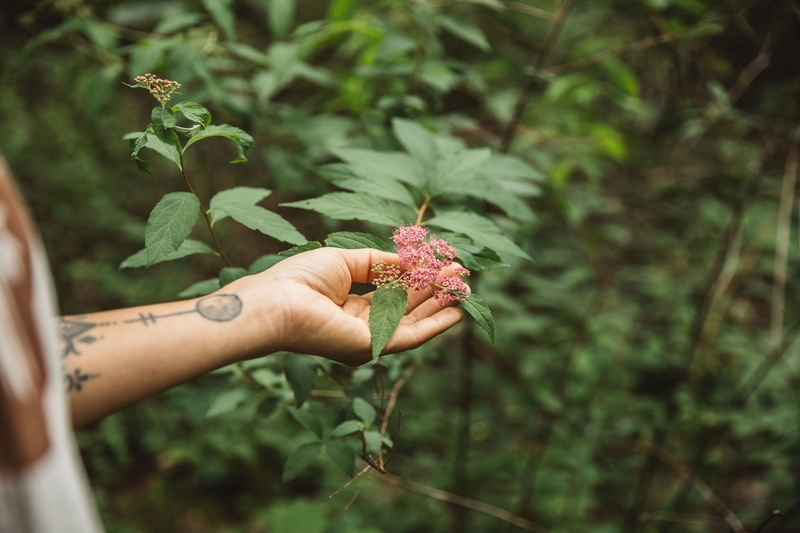
He is calling on listeners to nurture what his fellow Kentuckian Wendell Berry calls “imagination.”
Typically, we hear the word imagination and think of something fantastical and otherworldly. We picture smiling trees, flying unicorns—things that aren’t real.
But Berry, a lifelong farmer and poet, describes imagination differently. In his essay It All Turns on Affection, he writes that …
“To take it seriously, we must give up at once any notion that imagination is disconnected from reality or truth or knowledge. It has nothing to do with clever imitation of appearances or ‘dreaming up.’ … Imagination thrives on contact, on tangible connection.”
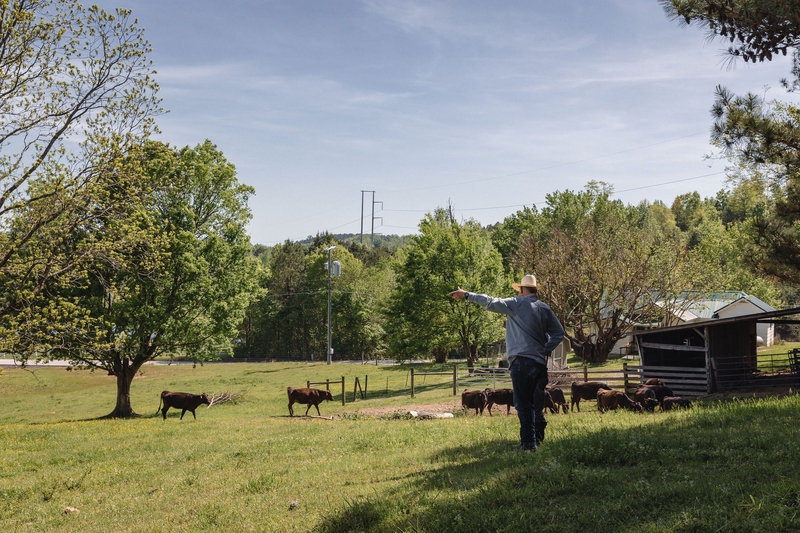
Imagination is knowing a place so well that we can be thousands of miles away from it, but in an instant, we can shut our eyes and picture it—in all the richness of detail that makes it distinct from anywhere else on earth.
Imagination is, to translate back into Childers’ lyrics, knowing all about the rocks and the weeds and the woodpile—and respecting the other creatures that call these places home.
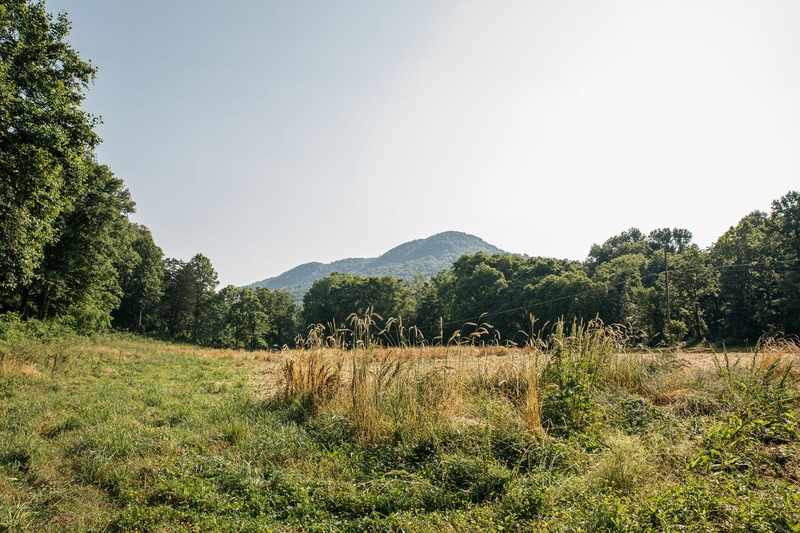
Or, in my own case, it’s knowing my family’s farm in Middle Tennessee so well that I can smell the hay sitting in the loft; hear the cattle grazing a back pasture; see the blue heron take flight across the pond; feel the sun on my neck while chopping weeds in the garden; and taste that blackberry from the fence row with Mama standing next to me—all while sitting at my kitchen island in Memphis.
Imagination calls upon us to “watch out,” to look and see, to forge a connection to a place rooted in attunement, intimacy, and awareness.
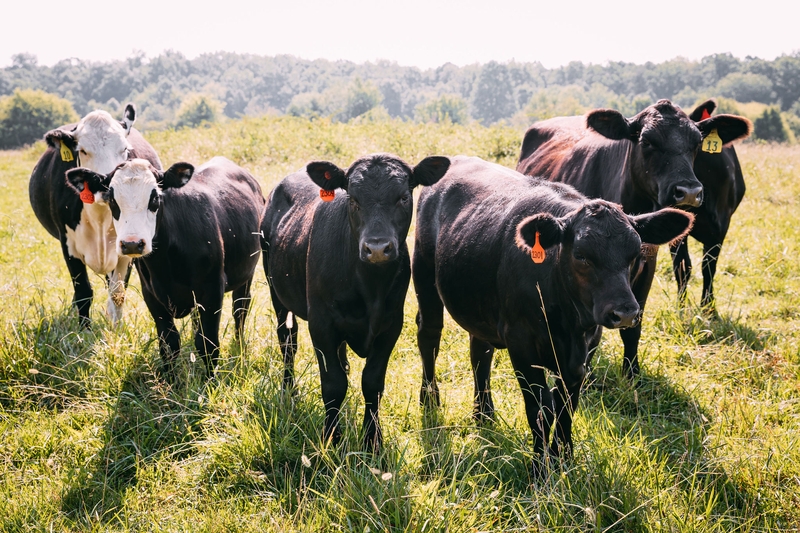
To know the sounds and smells and names of the other living things around us. To cultivate a relationship with the land.

The characters in “Watch Out” are forming that tangible, direct connection. They’re identifying plants through hands-on experience and they’re learning the rhythms of the seasons. They’re spending time in the woods with people they know and love.
In the process, local wisdom is handed down. Attention is practiced. Without these virtues, that act of foraging is dangerous—for the forager and for the place itself.
Minus imagination and attunement, either the forager consumes things they shouldn't and gets sick, or spooks that mama bear and gets mauled, or takes everything all at once with no regard for the place, no longer foragers but now extractors, because they are shortsighted and don't know what they need.
Think clear cutting a forest. Or paving over a family farm to build yet another Dollar General. Or strip mining a mountainside.
Imagination is important on its own as place-based wisdom, yet it feels most valuable because of its result. When these direct connections with a place are formed, we start to have affection for it. And in that enduring, forceful love, we find the possibility, and even the obligation, of good care.
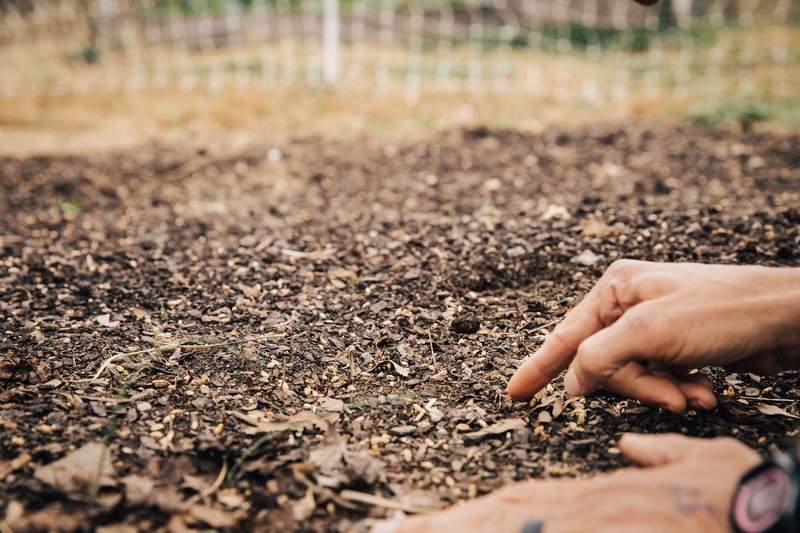
If there’s one thing our forests and farms, pastures and prairies, rivers and streams and mountains and neighborhoods need right now, it’s more love-driven care.
There may well be layers to the song’s meaning. Childers could be encouraging care and caution in navigating relationships between people. Or perhaps he is encouraging more of us to learn the art of foraging. Maybe I’m missing another subtler point.
But to me, the message seems clear.
When we’re walking through the woods, or when we’re searching for food, or when we’re stepping into places that aren’t solely our own—which is to say most every place on earth—we should do so with care and respect. We should learn from and about our surroundings and treat the land as more than just a passive setting where our own story happens.
We should watch out. If we do, there’s no telling what we might see.

Brooks Lamb is a writer and farmer in mind and spirit when not in practice. He lives with his wife Regan in Memphis. Learn more at www.BrooksLamb.com.
Brooks Lamb is a farmer, teacher, author of Love for the Land and an American Farmland Trust Land Protection Specialist.
He's also a good man and friend.
We are proud to publish his original essay on a song from the new Tyler Childers album.

When Tyler Childers Say "Watch Out," We Should Listen
By Brooks Lamb
At the end of July, Tyler Childers released his latest album. Called Snipe Hunter, it includes a baker’s dozen songs. I like most of them—and even love a few.
“Bitin’ List,” which speaks to who Childers would bite should he ever get rabies, is hilarious, bizarre, and brilliant. “Poachers” is an entertaining story song, one that alludes to hunting dogs, too-powerful game wardens, seized-property auctions, and even The Shawshank Redemption. “Dirty Ought Trill” is a flat-out heater that makes me want to dance —and I can’t dance.
But more than any of these tracks, it’s “Watch Out” that has captured my attention over the last few weeks. It’s the song that keeps spinning in the background of my brain while I’m working or running. More than once, I’ve woken up in the morning with the lyrics stuck in my head.
In this song, Childers sings about foraging. The song’s narrator—Childers himself or maybe some other character—describes the different plants and mushrooms for which he’s searching. He refers to both their “actual names” and their vernacular titles, or the names that have been passed down from friends and family.

At one point, he finds an oyster mushroom and says, “it is your daddy’s favorite.” With that one added line, the context shifts. It’s like the narrator is out in the woods with his child, sharing generational wisdom along the way.
The song also contains some warnings. It tells anyone foraging through fields and forests to keep an eye out for copperheads, especially “in the rocks and the weeds and the woodpile.” As someone who has been snakebit while cleaning up brush under a magnolia tree, I appreciate the heads up.
The lyrics also suggest whistling while walking through the woods to alert other forest dwellers, especially mama bears, that you’re coming. That image is powerful, and the advice is practical. I recently spoke with my good friend Mike, a fellow Childers fan, who lives in Johnson City, Tennessee. While he’s hiking through remote parts of the Appalachian mountains, he now whistles this song.
"Childers is asking us to 'Watch Out' - not just for lurking dangers, but for the beauty and particularity that make the places around us so unique."
I could stop analyzing the tune and just enjoy it. I could look back on happy moments spent foraging with my mom— picking blackberries in overgrown fence rows, wearing long sleeves and rubber boots in the summer heat to protect us against snakes and thorns.
But as I listen and re-listen, I can’t help but think that Childers is asking us to hear, and do, something deeper. To me, the song isn’t so much an invitation to start foraging. Instead, it’s a plea to pay attention.
Childers is asking us to “Watch Out”—not just for lurking dangers, but for the beauty and particularity that make the places around us unique.

He is calling on listeners to nurture what his fellow Kentuckian Wendell Berry calls “imagination.”
Typically, we hear the word imagination and think of something fantastical and otherworldly. We picture smiling trees, flying unicorns—things that aren’t real.
But Berry, a lifelong farmer and poet, describes imagination differently. In his essay It All Turns on Affection, he writes that …
“To take it seriously, we must give up at once any notion that imagination is disconnected from reality or truth or knowledge. It has nothing to do with clever imitation of appearances or ‘dreaming up.’ … Imagination thrives on contact, on tangible connection.”

Imagination is knowing a place so well that we can be thousands of miles away from it, but in an instant, we can shut our eyes and picture it—in all the richness of detail that makes it distinct from anywhere else on earth.
Imagination is, to translate back into Childers’ lyrics, knowing all about the rocks and the weeds and the woodpile—and respecting the other creatures that call these places home.

Or, in my own case, it’s knowing my family’s farm in Middle Tennessee so well that I can smell the hay sitting in the loft; hear the cattle grazing a back pasture; see the blue heron take flight across the pond; feel the sun on my neck while chopping weeds in the garden; and taste that blackberry from the fence row with Mama standing next to me—all while sitting at my kitchen island in Memphis.
Imagination calls upon us to “watch out,” to look and see, to forge a connection to a place rooted in attunement, intimacy, and awareness.

To know the sounds and smells and names of the other living things around us. To cultivate a relationship with the land.

The characters in “Watch Out” are forming that tangible, direct connection. They’re identifying plants through hands-on experience and they’re learning the rhythms of the seasons. They’re spending time in the woods with people they know and love.
In the process, local wisdom is handed down. Attention is practiced. Without these virtues, that act of foraging is dangerous—for the forager and for the place itself.
Minus imagination and attunement, either the forager consumes things they shouldn't and gets sick, or spooks that mama bear and gets mauled, or takes everything all at once with no regard for the place, no longer foragers but now extractors, because they are shortsighted and don't know what they need.
Think clear cutting a forest. Or paving over a family farm to build yet another Dollar General. Or strip mining a mountainside.
Imagination is important on its own as place-based wisdom, yet it feels most valuable because of its result. When these direct connections with a place are formed, we start to have affection for it. And in that enduring, forceful love, we find the possibility, and even the obligation, of good care.

If there’s one thing our forests and farms, pastures and prairies, rivers and streams and mountains and neighborhoods need right now, it’s more love-driven care.
There may well be layers to the song’s meaning. Childers could be encouraging care and caution in navigating relationships between people. Or perhaps he is encouraging more of us to learn the art of foraging. Maybe I’m missing another subtler point.
But to me, the message seems clear.
When we’re walking through the woods, or when we’re searching for food, or when we’re stepping into places that aren’t solely our own—which is to say most every place on earth—we should do so with care and respect. We should learn from and about our surroundings and treat the land as more than just a passive setting where our own story happens.
We should watch out. If we do, there’s no telling what we might see.

Brooks Lamb is a writer and farmer in mind and spirit when not in practice. He lives with his wife Regan in Memphis. Learn more at www.BrooksLamb.com.


















